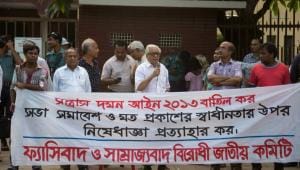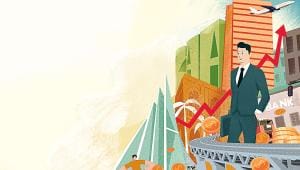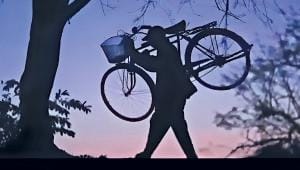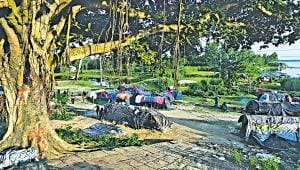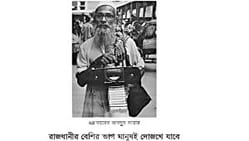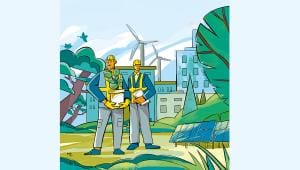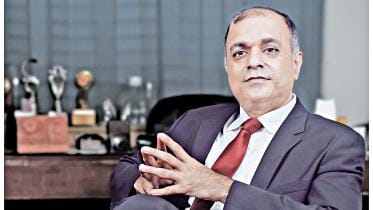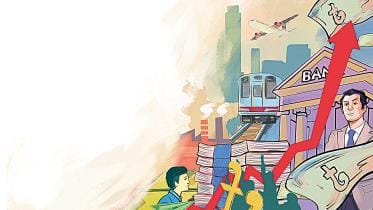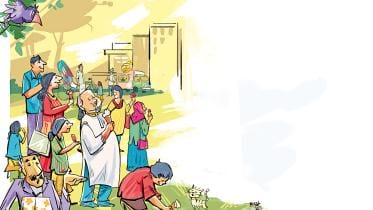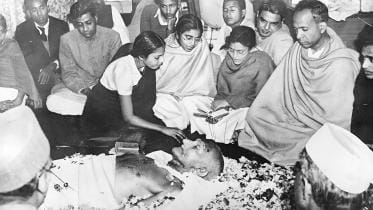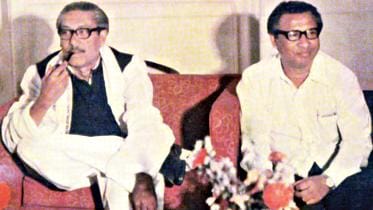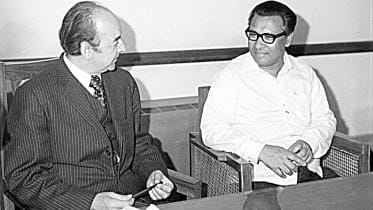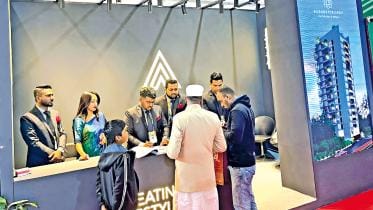'We must not lose focus from real political barriers'
Hasina took dynasty politics to levels we could not have ever imagined. What happened to Sheikh Mujib’s former residence was unfortunate. But I would say that Sheikh Hasina is partly responsible for the incident.
7 September 2025, 08:22 AM
Banking on Sustainability: How Bangladesh is building a greener future
Sustainable finance is emerging as a defining theme for the banking industry in Bangladesh, a country that is acutely vulnerable to the impacts of climate change.
30 August 2025, 18:00 PM
Indigenous Lives on Screen
Aung Rakhine, director of Mor Thengari (My Bicycle, 2015)—the first Chakma-language feature—shares his vision for portraying Bangladesh’s indigenous lives, as he prepares his next film, Mro, on the stories and beliefs of the Mro community.
29 August 2025, 18:00 PM
“Bangladesh’s greatest asset is its people; its greatest failure is not investing in them”
In conversation with Dr Hossain Zillur Rahman—eminent social thinker, researcher, and Executive Chairman of the Power and Participation Research Centre (PPRC), as well as a former Adviser to the Caretaker Government of Bangladesh—who shares his insights on the colonial legacies of governance, the dynamics of Bangladesh’s economic transformation, and the challenges of building human resources.
22 August 2025, 18:00 PM
Christian conversion and the politics of faith in colonial Bengal
While Europe experienced an age of evangelical awakening in the eighteenth century, political circumstances in India posed challenges to the work of missionary preaching.
18 August 2025, 13:22 PM
Beyond the snake charms: The changing lives of the Bedes
The Daily Star (TDS): What do historical and literary sources reveal about the true origins of the Bede community?
15 August 2025, 18:00 PM
“Most couldn’t say what a home looked like”
The Daily Star (TDS): What inspired you to begin interviewing people living on the streets?
8 August 2025, 18:00 PM
Greener factories stronger future
As Bangladesh strides towards middle-income status, it must confront a reality that few nations can ignore: it is one of the most climate-vulnerable countries in the world.
6 August 2025, 18:00 PM
BSRM is leading sustainability with the lowest utility use and the highest standards
The Daily Star (TDS): What specific green practices or innovations helped your factory secure the Green Factory Award 2025?
6 August 2025, 18:00 PM
“Robust democratic environment remains a fictitious configuration of our noisy imagination”
In conversation with Salimullah Khan, one of Bangladesh’s most prominent public intellectuals and a professor in the Department of History & Philosophy at North South University.
4 August 2025, 18:00 PM
Clean sweep ahead: how washing machines are changing Bangladeshi homes
Once considered a luxury item, the washing machine is steadily becoming a sought-after home appliance in Bangladesh. For a country juggling rapid urbanisation, dual-income households, and shifting gender roles, the promise of convenient laundry care is no longer a distant dream—it is inching closer to daily reality.
30 July 2025, 18:00 PM
Saving for a better tomorrow Bangladesh’s evolving deposit landscape
In a country where economic uncertainties often challenge long-term planning, deposits have quietly become one of the most powerful tools shaping both personal security and national financial stability.
29 July 2025, 18:00 PM
Cold rush Bangladesh’s ice cream boom
The ice cream industry in Bangladesh has been undergoing a transformative boom, fuelled by rising disposable incomes, expanding urbanisation, and a growing middle class with a taste for indulgence. Once a seasonal luxury, ice cream is fast becoming a staple of year-round urban leisure, with brands racing to meet evolving consumer preferences.
27 July 2025, 18:00 PM
Why not a new Bangladesh for labourers?
The Daily Star (TDS): What is the current status of the Labour Reform Commission and its activities?
25 July 2025, 18:00 PM
‘Tajuddin’s place in history should be seen in terms of his wartime leadership’
The Daily Star (TDS): How do you view Tajuddin Ahmad’s early political journey and his emergence as a key national figure?
22 July 2025, 18:00 PM
Self and Society: Tajuddin’s formative years
No leader emerges in a vacuum. The making of a political figure is deeply influenced by the social structures around them—family, religion, education, and the broader environment all leave lasting imprints.
22 July 2025, 18:00 PM
‘The trial of the jail killing case should be reopened’
The Daily Star (TDS): We all know Tajuddin Ahmad as a leader, but how was he as a father?
22 July 2025, 18:00 PM
‘Tajuddin Ahmad seems like a Greek tragic hero who had all the great qualities but destiny was against him’
The Daily Star (TDS): What inspired you to make the documentary Tajuddin Ahmad: An Unsung Hero?
22 July 2025, 18:00 PM
‘Tajuddin was objective, fact-based — quite unlike many other Awami League leaders’
The Daily Star (TDS): How and when did you first come into contact with Tajuddin Ahmad?
22 July 2025, 18:00 PM
REHAB Fair: Exploring homes, building futures
For many prospective homeowners, finding the right flat or apartment is a complex journey.
13 July 2025, 18:00 PM

